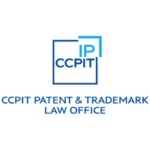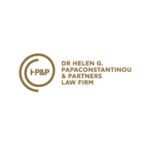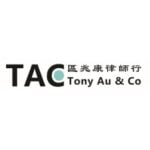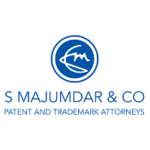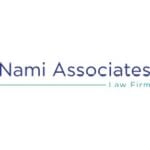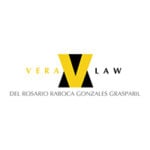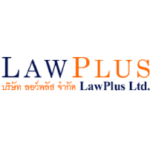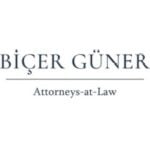This guide provides a systematic examination of intellectual property rights protection under German law, addressing the fundamental questions that legal practitioners encounter when advising clients on IP matters in Germany. Germany has established itself as a key jurisdiction for the enforcement of intellectual property rights in Europe, with a reputation stemming from a well-developed legal framework and highly specialized court system that offers efficient and reliable mechanisms for rights holders.
Germany’s IP regime aligns with international and especially European standards, making it an attractive and strategic venue for asserting and defending IP rights across all major IP categories. The German IP system combines federal legislation with European Union harmonization, creating a sophisticated framework with cost-effective proceedings that increases attractiveness to both local and international parties.
-
What different types of intellectual property rights exist to protect: (a) Inventions (e.g. patents, supplementary protection certificates, rights in trade secrets, confidential information and/or know-how); (b) Brands (e.g. trade marks, cause of action in passing off, rights to prevent unfair competition, association marks, certification marks, hallmarks, designations of origin, geographical indications, traditional speciality guarantees); (c) Other creations, technology and proprietary interests (e.g. copyright, design rights, semiconductor topography rights, plant varieties, database rights, rights in trade secrets, confidential information and/or know-how).
-
What is the duration of each of these intellectual property rights? What procedures exist to extend the life of registered rights in appropriate circumstances?
-
Who is the first owner of each of these intellectual property rights and is this different for rights created in the course of employment or under a commission?
-
Which of the intellectual property rights described above are registered rights?
-
Who can apply for registration of these intellectual property rights and, briefly, what is the procedure for registration?
-
How long does the registration procedure usually take?
-
Do third parties have the right to take part in or comment on the registration process?
-
What (if any) steps can the applicant take if registration is refused?
-
What are the current application and renewal fees for each of these intellectual property rights?
-
What are the consequences of a failure to pay any renewal fees and what (if any) steps can be taken to remedy a failure to pay renewal fees?
-
What are the requirements to assign ownership of each of the intellectual property rights described above?
-
Is there a requirement to register an assignment of any of these intellectual property rights and, if so, what is the consequence of failing to register?
-
What are the requirements to licence a third party to use each of the intellectual property rights described above?
-
Is there a requirement to register a licence of any of these intellectual property rights and, if so, what is the consequence of failing to register?
-
Are exclusive and non-exclusive licensees given different rights in respect of the enforcement of the licensed IP, and if so, how do those rights differ?
-
Are there criminal sanctions for infringement of any intellectual property rights, and if so, what are they and how are they invoked?
-
What other enforcement options are available for each of the intellectual property rights described above? For example, civil court proceedings, intellectual property office proceedings, administrative proceedings, alternative dispute resolution.
-
What is the length and cost of such procedures?
-
Where court action is available, please provide details of which court(s) have jurisdiction, how to start proceedings, the basics of the procedure, the time to trial, the format of the trial, the time to judgment and award of relief and whether any appeal is available.
-
What customs procedures are available to stop the import and/or export of infringing goods?
-
Are any non-court enforcement options or dispute resolution mechanisms mandatory in respect of intellectual property disputes in any circumstances? If so, please provide details.
-
What options are available to settle intellectual property disputes in your jurisdiction?
-
What is required to establish infringement of each of the intellectual property rights described above? What evidence is necessary in this context?
-
How does the court acquire any necessary information (fact or technical) and in what circumstances does it do so? In particular a) Is there a technical judge, a judge with technical experience, a court appointed expert, an expert agreed by the parties, and/or parties’ expert witness evidence? b) What mechanisms are available for compelling the obtaining and protecting of evidence? Is disclosure or discovery available?
-
How is information and evidence submitted to the court scrutinised? For example, is cross-examination available and if so, how frequently is it employed in practice?
-
What defences to infringement are available?
-
Who can challenge each of the intellectual property rights described above?
-
When may a challenge to these intellectual property rights be made (e.g. during any registration process or at any time during the subsistence of the right)?
-
Briefly, what is the forum and the procedure for challenging each of these intellectual property rights and what are the grounds for a finding of invalidity of each of these intellectual property rights?
-
Are there any other methods to remove or limit the effect of any of the intellectual property rights described above, for example, declaratory relief or licences of right?
-
What remedies (both interim and final) are available for infringement of each of the intellectual property rights described above?
-
What are the costs of enforcement proceedings and is any kind of costs recovery available for successful parties? Is there a procedural mechanism enabling or requiring security for costs?
CONCLUSION
German intellectual property law provides comprehensive protection for various forms of intellectual property through a sophisticated system of federal legislation, specialized courts, and administrative procedures. The system emphasizes strong rights protection with effective enforcement mechanisms while maintaining balance through validity challenges and limited exceptions.
Key characteristics of the German IP system include the bifurcated structure separating validity and infringement proceedings, strong injunctive relief, specialized courts with technical expertise, and cost-effective proceedings that make Germany an attractive forum for IP enforcement. The system’s emphasis on written procedures and technical expertise requires careful preparation and strategic planning for successful IP protection and enforcement.
The personalistic approach to copyright, distinguishing it from other IP rights, reflects German legal tradition while adapting to EU harmonization requirements. The comprehensive trade secrets protection, recently updated to implement EU standards, provides important complementary protection alongside traditional IP rights.
Recent developments in artificial intelligence, upcoming EU legislative reforms, and evolving case law continue to shape the German IP landscape, requiring legal practitioners to stay current with both national and European developments. Germany’s role as a key jurisdiction for international IP enforcement remains strong, providing reliable and efficient mechanisms for protecting intellectual assets in an increasingly complex global marketplace.


